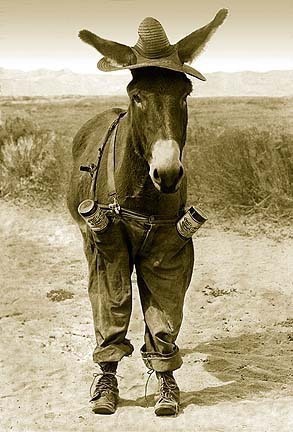Recommended Posts
Quoteunder Pennsylvania law, a serious crime like a homicide is initially filed in criminal court unless the defense can make a case for sending it to the juvenile system.
This is the problem here. It's up to the defense to show why it should be sent to juvenile court.
QuoteA key requirement of the juvenile court would be for Brown to show potential for rehabilitation, in which case he could be free as early as when he turned 21.
However, the lower court found against him after insisting that he show remorse -- something his lawyers say he can't do, given that he insists he did not commit the murder.
So what this procedural system does is say, "You're in criminal court unless you demonstrate remorse." TO demonstrate remorse would be to admit doing it!
The appeal is therefore on the Fifth Amendment. This is the travesty of certain procedural rules and the grave situation that prosecutors place people in. "Admit that you did it and you can be out by 21. Don't admit it and you're in for life."
This is the fundamental unfairness of it - using threat to force confession.
My wife is hotter than your wife.
kallend 2,196
The entire concept of trying a child as an "adult" is fundamentally flawed.
The only sure way to survive a canopy collision is not to have one.
davjohns 1
QuoteCalling a child "adult" does not make a child an adult, any more than calling a dog "cat" makes it a cat.
The entire concept of trying a child as an "adult" is fundamentally flawed.
I disagree entirely. Some children have the faculty to make adult decisions, appreciate the criminality and impact of their actions, and take criminal action. They make adult decisions and should endure adult consequences. Otherwise, the preternaturally mature minor would use the minority status as a shield. IE: "I am 16. They can't lock me up for long. I'll kill the ten people at school who are annoying me." In this case, the potential to be tried as an adult acts as a deterent.
I agree, however, that it should always be a case by case basis. It is a time of transition for humans and blanket rules are to be avoided.
But do you think it would be appropriate to just remove all of the warning labels and let nature take its course.
rehmwa 2
Your contention is that "child" and "adult" should not be legally defined in these cases by some arbitrary age criteria, but rather by assessment of the individual's personality, character, and ability to demonstrate reasoning.
I'm all for that, but does it conflict, then, with areas not related to committing criminal acts as well? Like Voting, driving, drinking, age allowed to work, etc
and if not, does it not automatically create gray areas concerning equivalent treatment under law?
in other words - why shouldn't we simply treat all criminal acts the same based on (1) the crime committed and (2) the likelihood of the criminal to repeat the crime - and nothing else? The question of age or maturity not being defined explicitly, but rather that just comes into consideration of the 2nd criteria? That 2nd criteria being a rather broadbased area that also considers (for increase or reduction of severity of punishment) so many of the subjective areas that are painfully defined today - like age, intent, capability, mental status, etc etc etc.
...
Driving is a one dimensional activity - a monkey can do it - being proud of your driving abilities is like being proud of being able to put on pants
kallend 2,196
QuoteQuoteCalling a child "adult" does not make a child an adult, any more than calling a dog "cat" makes it a cat.
The entire concept of trying a child as an "adult" is fundamentally flawed.
I disagree entirely. .
So you think calling a dog "cat" makes it a cat.
Okayyy.
The only sure way to survive a canopy collision is not to have one.
Amazon 7
QuoteQuoteCalling a child "adult" does not make a child an adult, any more than calling a dog "cat" makes it a cat.
The entire concept of trying a child as an "adult" is fundamentally flawed.
I disagree entirely. Some children have the faculty to make adult decisions, appreciate the criminality and impact of their actions, and take criminal action. They make adult decisions and should endure adult consequences. Otherwise, the preternaturally mature minor would use the minority status as a shield. IE: "I am 16. They can't lock me up for long. I'll kill the ten people at school who are annoying me." In this case, the potential to be tried as an adult acts as a deterent.
I agree, however, that it should always be a case by case basis. It is a time of transition for humans and blanket rules are to be avoided.
The fact that some groups rely on the fact that children are VERY maleable such as gangs who use underage kids just because they ARE underage to pull off some really heinous crimes, has to take into account the seriousness of the acts the little assholes participate in. Think also of the very worst of the worst genocidal murderous maniac child soldiers that are used in Africa. Kids do have the propensity for outlandish violence, especially if those who are teaching them that are some twisted sociopaths. Age itself is not a way to hide even if you have never been brought up with a conscience or any form of compassion for a fellow human being, as so many are.
He excuted her in her sleep, the Residue was still on his hands from firing the gun....
He killed her unborn Infant, (Or do you libs see that as a legal abortion?) ...
I hunted at his age, growing up, I understood death...this sick fuck understands he killed, Age does not matter!
davjohns 1
QuoteA bit dizzy reading the words vs the content.
Your contention is that "child" and "adult" should not be legally defined in these cases by some arbitrary age criteria, but rather by assessment of the individual's personality, character, and ability to demonstrate reasoning.
I'm all for that, but does it conflict, then, with areas not related to committing criminal acts as well? Like Voting, driving, drinking, age allowed to work, etc
and if not, does it not automatically create gray areas concerning equivalent treatment under law?
in other words - why shouldn't we simply treat all criminal acts the same based on (1) the crime committed and (2) the likelihood of the criminal to repeat the crime - and nothing else? The question of age or maturity not being defined explicitly, but rather that just comes into consideration of the 2nd criteria? That 2nd criteria being a rather broadbased area that also considers (for increase or reduction of severity of punishment) so many of the subjective areas that are painfully defined today - like age, intent, capability, mental status, etc etc etc.
Where to start.
Keeping a 16 year old rapist / murderer from continuing this path of criminal behavior is slightly different from denying him the ability to vote, get drunk, drive or have certain jobs. Arbitrary legal ages for those things do not endanger the person or society. Arbitrarily deciding that the same 16 year old will not serve but a nominal amount of time for his crime is whole new world.
Historically, the law has presumed that certain ages had reduced or no capacity to appreciate criminality. Most states consider a child under seven incapable of criminal intent. In reality, there are those who certainly can.
Determining probability of recidivism like you propose is attractive, but difficult in the extreme. It would require lots of research, investigation, testimony and debate in courts. It would also have to completely ignore the bias people have to hope for the best out of children. We all want to believe the seven year old can be taught to be a good person. The law accepts this and saves us the trouble of proving it in every case. We only have to prove when there is an exception.
But do you think it would be appropriate to just remove all of the warning labels and let nature take its course.
davjohns 1
QuoteQuoteQuoteCalling a child "adult" does not make a child an adult, any more than calling a dog "cat" makes it a cat.
The entire concept of trying a child as an "adult" is fundamentally flawed.
I disagree entirely. .
So you think calling a dog "cat" makes it a cat.
Okayyy.
I hope that was a joke. If so...got it.
If not, ignoring that I disagree with your conclusion and pretending I disagree with your ridiculous metaphor is juvenile. It puts you in a category of people who are not worthy of debate.
But do you think it would be appropriate to just remove all of the warning labels and let nature take its course.
funjumper101 15
QuoteQuoteQuoteQuoteCalling a child "adult" does not make a child an adult, any more than calling a dog "cat" makes it a cat.
The entire concept of trying a child as an "adult" is fundamentally flawed.
I disagree entirely. .
So you think calling a dog "cat" makes it a cat.
Okayyy.
I hope that was a joke. If so...got it.
If not, ignoring that I disagree with your conclusion and pretending I disagree with your ridiculous metaphor is juvenile. It puts you in a category of people who are not worthy of debate.
It is a well written metaphor that is easily understood and makes a precise point perfectly. You wrote "I disagree entirely. .".
In other words, you write that you think calling a dog a cat actually makes a dog a cat.
Calling a child an "adult" does not make them an adult. Not in any way. Arguing otherwise is absurd.
davjohns 1
Nobody is calling a child an adult. The terminology is that the child is being tried as an adult. The child, having assumed an adult role and being adjudicated as having adult understanding of those actions, is afforded the consequences an adult in similar posture would endure.
The dog and cat metaphor is useless. The child is still a child just like a cat is still a cat. But some children have a greater understanding of their actions and consequences than others. It is important that these children be dealt with where they are for the protection of society. Pretending they have the simplistic understanding accorded to their age does not help anyone.
If you discovered a dog had a disease that is normally associated with cats, you would treat that dog with the medicine that cured that disease. You wouldn't declare it impossible to cure just because it was in a dog.
But do you think it would be appropriate to just remove all of the warning labels and let nature take its course.
Calling a murderer a child does not make them a child.
A rose by any other name.....
Originally employed as a weapon of war, the hammer nowadays is used as a
kind of divining rod to locate the most expensive parts adjacent the
object we are trying to hit.
billvon 3,152
>adult understanding of those actions, is afforded the consequences an adult in
>similar posture would endure.
Well, that's the problem, isn't it? The reassignment of his status to something he is not without his consent. If a friend of yours got into a domestic dispute with his wife in the house down the street, and he was arrested, and they decided to try him as a foreign enemy combatant, would you consider that OK?
>If you discovered a dog had a disease that is normally associated with
>cats, you would treat that dog with the medicine that cured that disease.
Even if the medicine was useful to cats but would kill the dog? If that were the case, treating a dog like a cat could result in a dead dog - and wind the vet up in a courtroom.
There's a reason vets don't generally treat dogs like cats - and a reason we don't generally try children as adults.
QuoteCalling a child "adult" does not make a child an adult, any more than calling a dog "cat" makes it a cat.
The entire concept of trying a child as an "adult" is fundamentally flawed.
Unlike cats and dogs, children and adults are the same species. But there is nothing magical in the development of homo sapiens that occurs at the 18th or 21st birthdays. There is no substance behind this legal definition of adult.
It's pretty easy, to me, to treat 16 year old murderers as adults. Pre-teens are much harder to say this for.
Still, we have a kid who had no problem, and a full understanding of the consequences, with shooting his to be stepmom while she slept, and killing her and his future sibling. Emotional maturity might have stopped him from doing that, or maybe he'll still be a psychopath. So what do we do? At the least, we'd want him incarcerated until he's 21, and then reevaluate him. If he still has the empathy of a goon, keep him there.
Quote
Well, that's the problem, isn't it? The reassignment of his status to something he is not without his consent. If a friend of yours got into a domestic dispute with his wife in the house down the street, and he was arrested, and they decided to try him as a foreign enemy combatant, would you consider that OK?
more crappy comparisons.
We have legal definitions behind citizen and enemy combatants. Your dog doesn't hunt.
We have legal definitions behind adult, which includes when accused minors will be treated as such. The DA isn't just cheating and saying 'I think I'll claim this kid is 18 and try them in the big boy court.'
Quoteand a reason we don't generally try children as adults.
Except when that "child" has committed a crime so cold and calculated that he/she is determined to be a threat to society far past any term of incarceration given a juvenile. Shotgunning a sleeping pregnant woman would certainly qualify in any normal person's book.
Originally employed as a weapon of war, the hammer nowadays is used as a
kind of divining rod to locate the most expensive parts adjacent the
object we are trying to hit.






.thumb.jpg.4bb795e2eaf21b8b300039a5e1ec7f92.jpg)
He is criminally insane at the very least, and should never see day light...BTW, keep in mind he killed 2 poeple, not just one...
Share this post
Link to post
Share on other sites